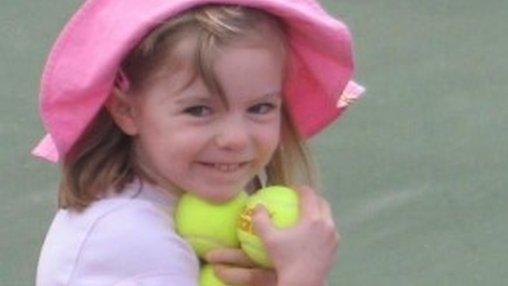Madeleine McCann: Police in Portugal search scrubland
- Published
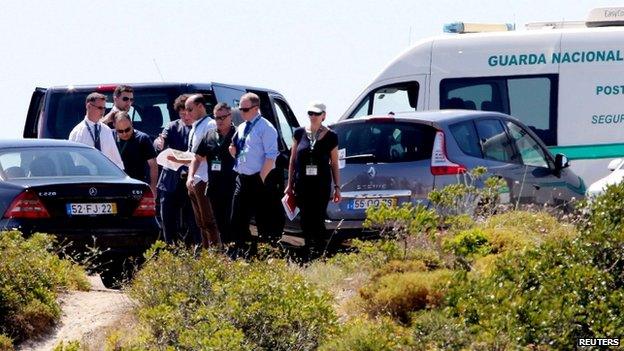
Police will use sophisticated equipment to look for signs of disturbed earth
Police investigating the disappearance of Madeleine McCann have started to use surveying equipment to outline a large section of scrubland in the Algarve resort of Praia da Luz.
The British girl was three when she went missing in the resort in 2007.
On 22 May, Scotland Yard said a "substantial phase of operational activity" in Portugal would start soon.
The BBC understands there are about 20 police officers and specialists at the search area.
Tents have also been put up at the site, which according to a local estate agent is about 15 acres in size.
Police are expected to use "ground-penetrating radar" to search the area, as Tom Burridge reports from Praia da Luz
Portuguese police arrived and cordoned off the area in the early hours of Monday. British officers from the Metropolitan Police arrived later in the morning to liaise with them.
The search, which is expected to continue until Friday, is being carried out after a request by the Metropolitan Police.
The Met has also asked for two other locations in Praia da Luz to be examined.
Officers are expected at some stage to use dogs and "ground penetrating radar" to search the scrubland, looking for signs of disturbed earth.
Although they have been seen marking out several sections of land, the search itself has not started.
Hire vans seen in the cordoned-off area are understood to contain technical equipment provided by Scotland Yard.
The area of scrubland - about the size of three football pitches - is surrounded by flats and villas, many of them holiday properties.
It is about five minutes' walk from the Ocean Club complex, where the McCanns were staying when Madeleine disappeared.
Scrubland search area, Praia da Luz
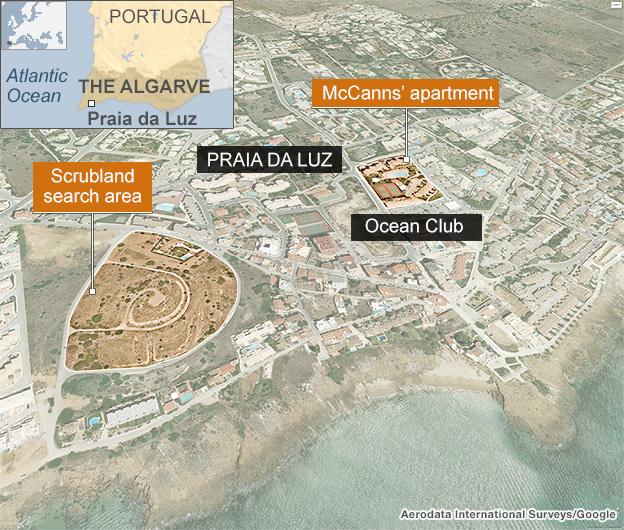
A 77-year-old man who has lived near the area of scrubland for 13 years told the BBC the latest search was "ridiculous".
"The police have been here before," said the man, who did not want to be named.
"We all helped search this area three or four days after it [Madeleine's disappearance] happened.
"I walk my dog every day and no one was digging holes."
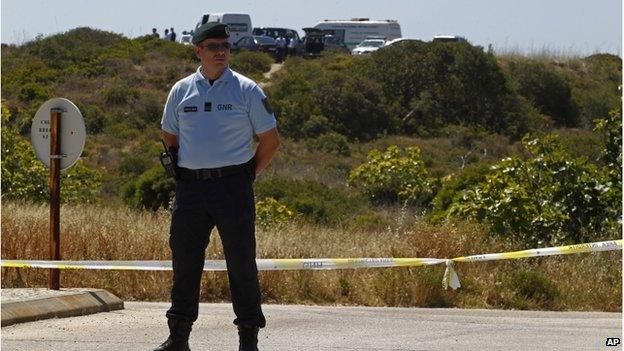
A cordon has been set up around an area of scrubland roughly the size of three football pitches
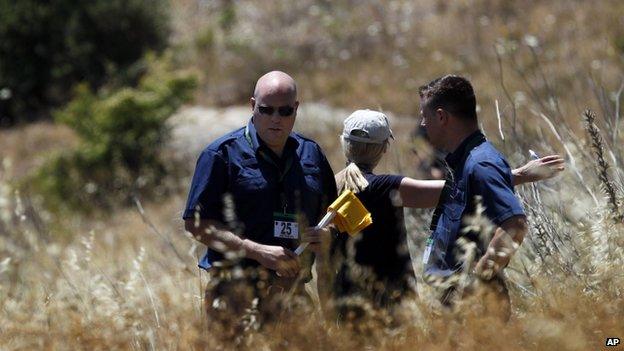
Police have been seen marking out various sections of the scrubland
The mayor of Praia da Luz, Victor Mata, said the timing of the search "couldn't be worse" and that villagers were being "punished" by the police activity.
He said: "With every search, it doesn't seem like we're going anywhere - we're going backwards."
He said he found out about the latest development around two weeks ago.
"I'm facilitating the work of the Portuguese police because the more I help them, the quicker this will end."
He remains unconvinced anything will be found at the current site to help the investigation.
"There was a battalion of people out here looking for the child seven years ago," said Mr Mata.
"Everybody was looking. Everyone wanted to find her. People criss-crossed that land as they did other parts of the village."
He said if there were more searches in future, he would consider finding a way to stop them taking place during the peak summer period.

At the scene
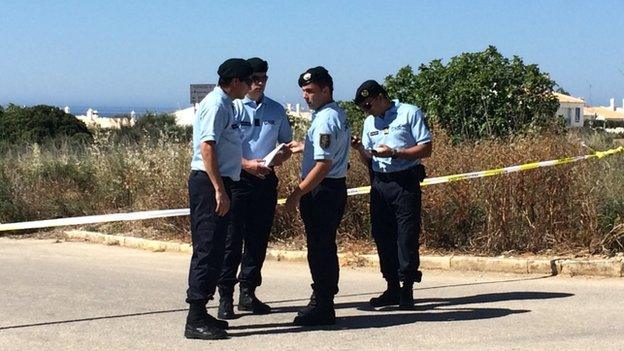
By Lauren Turner
The first residents knew of anything happening on this scrubland was when they were disturbed by barking dogs in the early hours.
The private land - earmarked for a development that was never built - was accessible last night but is now completely sealed off by the yellow and white tape of the GNR, the national police.
Portuguese officers, wearing sunglasses in the fierce sunshine, are standing guard at the perimeter of the site, which stretches down towards the coast.
The police have been joined by a large contingent from the media, who have cameras trained on the ground as they await developments. The only words being exchanged between officers and journalists is the occasional "bom dia" - or "good morning".
The scene is being watched too by locals walking past, or on their morning jog, and those in holiday apartments with balconies overlooking the Atlantic.
The view would ordinarily be picturesque but has been transformed today as the eyes of the world turn to this small Algarve resort again.

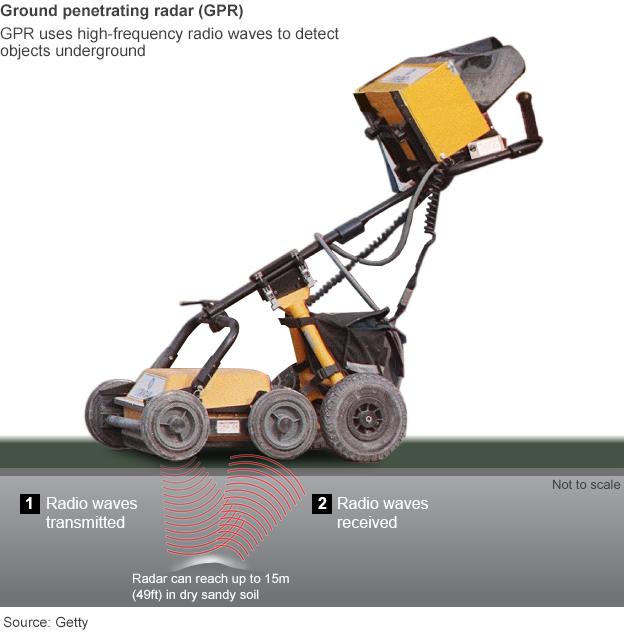
Stewart Drummond, 68, from Eaglesham, near Glasgow, who has been coming to Praia da Luz with his wife Janice for 27 years, said: "It's a pity it's taken so long to get to this stage.
"Talking to locals especially, they feel that they want to move on.
"Every time anything happens, it puts the resort back in the spotlight for the wrong reasons.
"But obviously everyone wants to see closure for the McCann family and if they find something, it would give them that.
"As parents, we feel for the family - for it to happen in such a 'safe' place makes it all the more tragic."
Paul Luckman, publisher of English-language newspaper the Portugal News, said local people were "fed up".
"That isn't because they don't want the child to be found, but they don't believe there's any credibility to all this [searching]," he said.
"The time has come to stop mudslinging and criticising local police. They work in a different way, but they get on with the job."
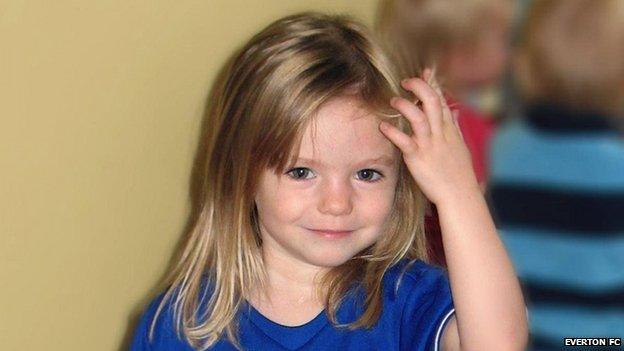
Madeleine McCann went missing in the Algarve resort of Praia da Luz in 2007
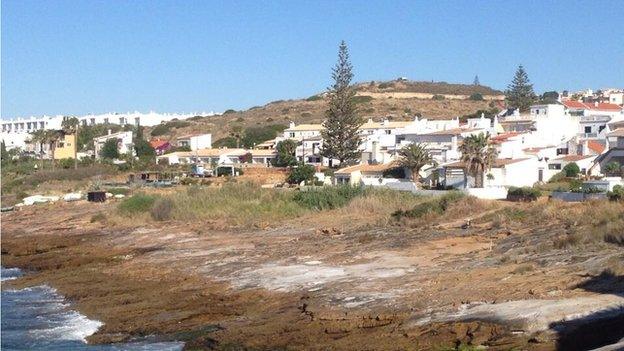
Police, whose vehicle is just visible on top of the mound, are searching scrubland overlooking the sea
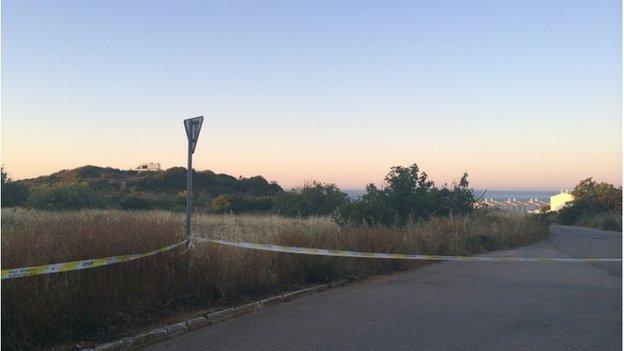
The area was taped off in the early hours of Monday
Scotland Yard launched a fresh investigation into Madeleine's disappearance last July, codenamed Operation Grange.
In March, British police said they were seeking an intruder who sexually abused five girls in Portugal between 2004 and 2006.
Detectives said the attacks happened in holiday villas occupied by UK families in the Algarve.
- Published2 June 2014
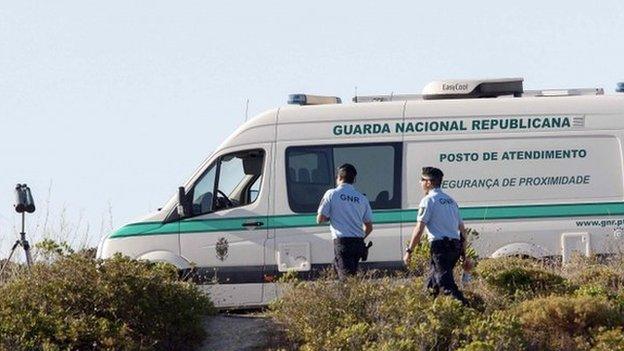
- Published2 June 2014
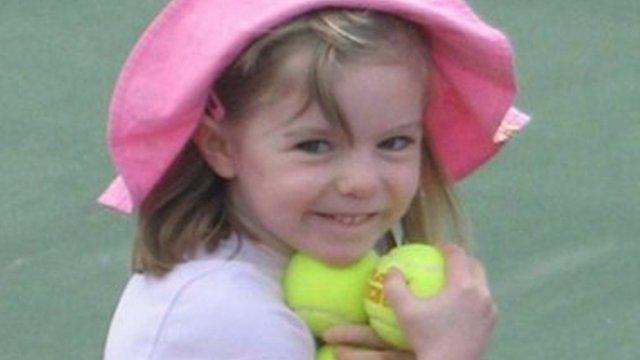
- Published13 June 2014
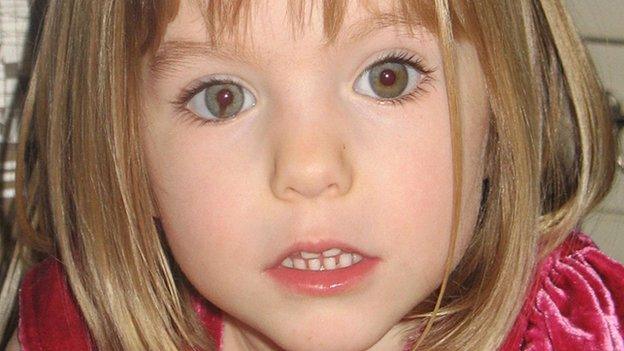
- Published22 May 2014
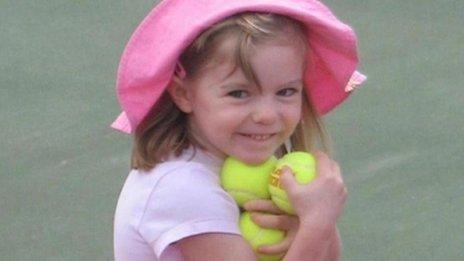
- Published9 May 2014

- Published6 May 2014

- Published1 May 2014
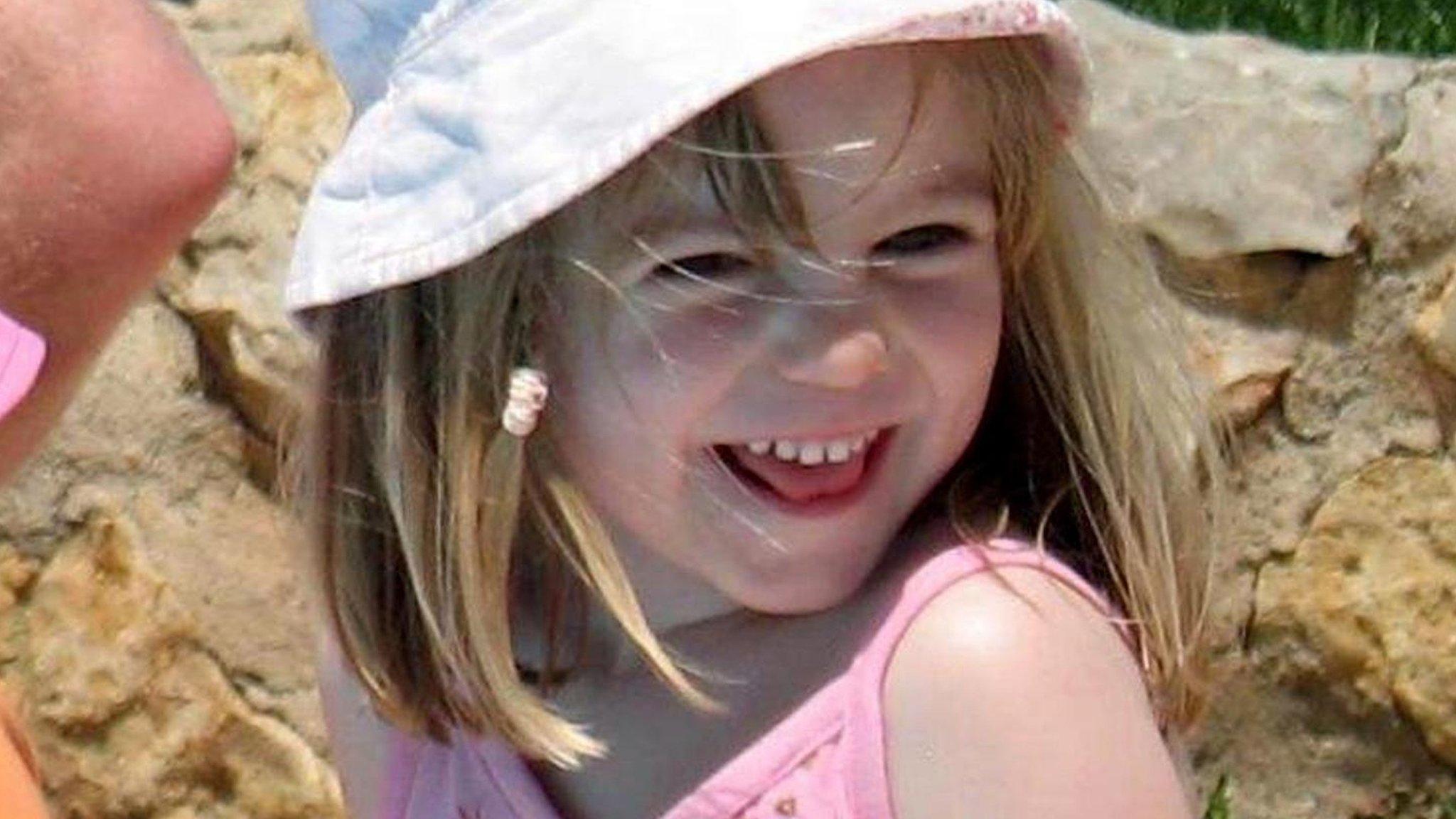
- Published23 April 2014
